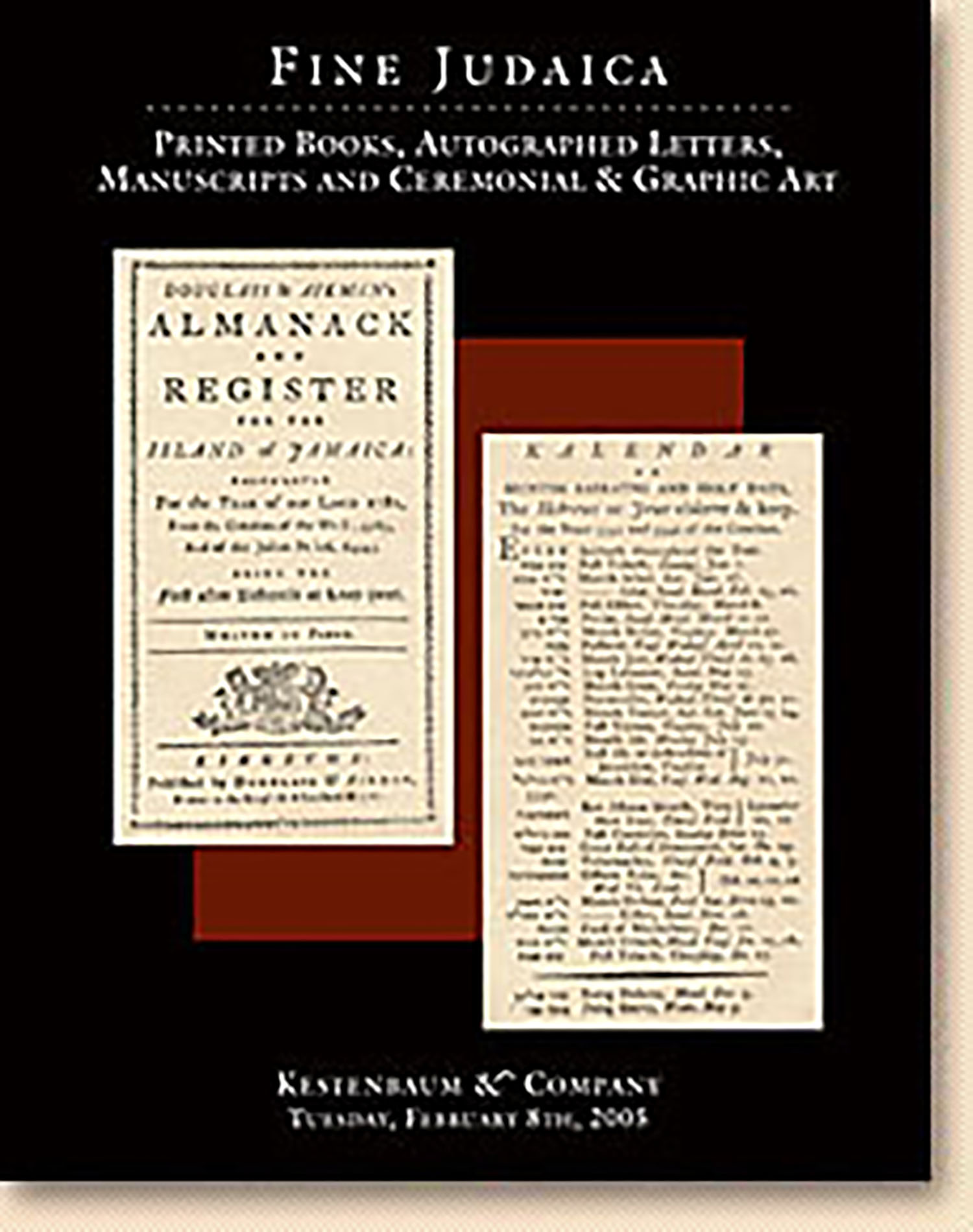Sheloshah Sarigim [“Three Clusters”: homilies on the Haphtaroth]

AUCTION 27 |
Tuesday, February 08th,
2005 at 1:00
Fine Judaica: Printed Books, Autographed Letters, Manuscripts, Ceremonial & Graphic Art
Lot 152
JOSEPH ISSACHAR BEN ELCHANAN
Sheloshah Sarigim [“Three Clusters”: homilies on the Haphtaroth]
Venice: Bragadin 1701
Est: $400 - $600
PRICE REALIZED $300
The title “Three Clusters” derives from the verse in Genesis 40:10 concerning the three clusters of grapes seen by Pharaoh's butler in his dream. The author, Joseph Issachar ben Elchanan (c.1642-1705) served as rabbi of Kremsier. At the time of the printing of this work in Venice, he was en route to Eretz Israel.
In his introduction the author expresses his gratitude to the famed financier Samuel Oppenheim of Vienna (1635-1703) and the “holy company” (chaburatha kadishatha). The “holy company” referred to is of course that of R. Judah Hasid, who in 1700 headed a mass emigration of mystically-inclined scholars to Eretz Israel. The project was financed by the Oppenheim, factor at the imperial court of Vienna, who chartered for the “holy company” two ships to take them down the Danube to the Black Sea. Unfortunately, this early Aschkenazic “aliyah” was a total fiasco. Many of the members of the fraternity died of illness en route. Judah Hasid himself died immediately after arrival in Eretz Israel in 1700. The remaining members ran up such enormous debt that the Turks confiscated the courtyard of their uncompleted synagogue in Jerusalem and forbade Aschkenazic Jews from settling in Jerusalem until the debt was repaid. Apparently, our author Joseph Issachar was a member of this kabbalistic fraternity.
See Yaari, Shluchei Eretz Israel (1977), pp. 322-323; EJ, Vol. X, col. 244
